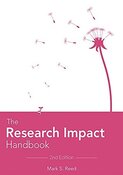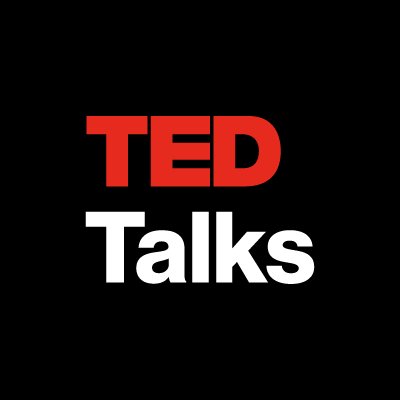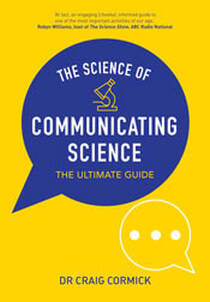Learn how to craft meaningful messages about your impact, and shape your analysis to support reflection and learning.
Effective communication boils down to some fairly commonsense principles and repeatable key concepts - although executing these well can take skills and practice!
This module is about understanding your audiences, figuring out the key messages they need to know, and communicating these in ways they can access and understand. This can also include your own internal stakeholders, as you can apply many of these principles to support effective reflection and learning within your team or organisations.
This topic is fairly vast, so a little like Module 6 (Tracking your impact) we're starting by giving you some key areas to think about.
This topic is fairly vast, so a little like Module 6 (Tracking your impact) we're starting by giving you some key areas to think about.
Takeaway points
- Start planning your communication as early as possible. This doesn't mean developing a super detailed plan, but the earlier you think about who and how you need to engage with your various stakeholders, the better you'll be at developing and executing an effective communications plan.
- Successful communication means leaving out some of the detail. For a key message to be memorable, you will need to remove a lot of information - that as researchers we feel is important - but to others is just noise.
- Considering storytelling principles is a good way to understand what effective communication looks like. It's not about making things up, it's about packaging your messages so they land. In the era of TED Talks there are many excellent resources available.
- Good communication often means speaking in a different language. We are trained to think and write research in a formal and passive style which can be hard for others to understand. Good communication means using language your audience understands. This can feel like we are 'breaking the rules', but the rules of the game are different.
- The more time you are able to spend connect with your stakeholders and next or end-users of your work, the better you will be in understanding what they really need to know about from your research. This investment of time is valuable in strengthening all stages of your research.
- Communication happens via many channels. Researchers tend to default to standard ones such as websites, hui, conferences and reports, but there are lots of others. This is where communications professionals in your organisation can really assist - especially if you have already taken some time to figure out who you might need to connect with (e.g., when completing the Impact Planning Tool or developing a communications plan).
Key resources
|
As the modules build on one another, so do the tools. The Beyond Results Impact Planning Tool is a great starting place to think about what aspects of your research you'll need to engage your various stakeholders on.
|
|
The Better Evaluation Website has a wealth of tools, templates, and guidance.
Search on 'communicating' or 'communications' and you'll find some great stuff, including this blog on effective communications planning, with links to extra resources. While several of these focus on communicating evaluation findings (rather than research), you can reframe it to fit your research purpose and questions instead.
|
|
The Research Impact Handbook website (Fast track your impact) also has useful tips on how you can get more engagement to achieve impact.
Click on this page and scroll down to 'Engagement for Impact' for lots of ideas on how to create impact through better engagement!
|
Other resources
|
Data Visualisation
Data visualisation has become increasingly important, as we realise how powerful great graphics can be in communicating key messages. While this is often best left to professionals, we can learn a lot about how to communicate findings better through applying some of the principles from this field.
Some our favourite websites and resources include:
They share tips via their websites and newsletters, and regularly post on Twitter. Follow them to get more ideas, as well as examples of good and bad 'data viz'. Check out this post showing some examples of 'then' and 'now' on Ann's Depict Data website - proof we are all on a learning journey! The Better Evaluation website also has plenty of pages on data visualisation - just search 'data visualisation'.
|
|
Story Telling
TED and TED Talks have showcased the value of weaving a powerful narrative around an important area of research, issue, or idea. There are now a range of videos (including TED Talks) and text books about how to do this well.
The TED Talks official guide to public speaking is worth checking out. It is easy to read, and you can watch the TED Talks referred to.
Akash Karia has also produced a quick read summarising some key storytelling techniques (23 TED Talks Storytelling: 23 Storytelling Techniques form the Best TED Talks).
As with our advice in other areas, treat these as a starting point for your own exploration.
|
|
Presentations
This is a whole other area of skills we can all develop, and there is a vast number of textbooks, online resources and tools.
We've found one organisation - Duarte - a great place to start. They run free online webinars, have a range of free online tools and resources (scroll down to 'Guides & Tools), as well as several books (linked on the same page).
|
|
Text books
There is a plethora of text books on communicating research and science. The Science of Communicating Science has been published by our CSIRO colleagues in Australia and comes well-recommended by our comms experts. It's an entertaining read with lots of tips to help you communicate science more effectively.
|
Interested in more?
Check out our impact resources and impact news pages, sign up to the networks or professional organisations we've listed here, or subscribe to updates from iPEN.
Check out our impact resources and impact news pages, sign up to the networks or professional organisations we've listed here, or subscribe to updates from iPEN.
Read our impact glossary to demystify any terminology used!














